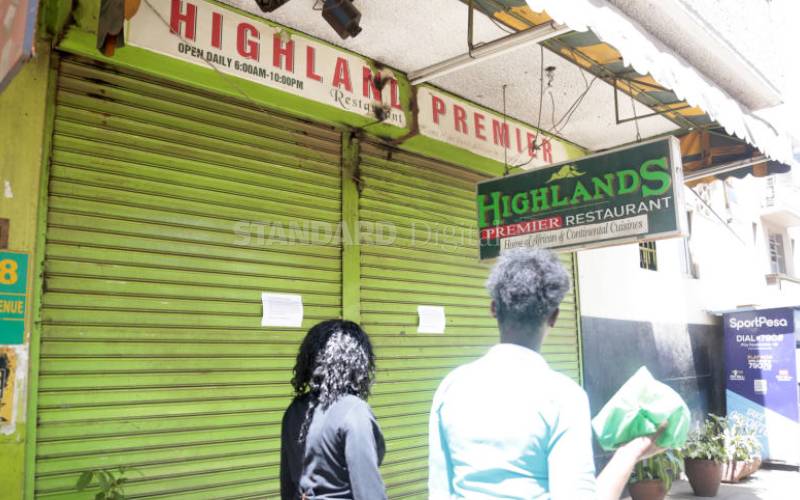×
The Standard e-Paper
Home To Bold Columnists

Highlands Premier Restaurant on Moi Avenue in Nairobi is closed down due to coronavirus. [Boniface Okendo,Standard]
Kenyans are beginning to feel the pinch of tough measures put in place to step up the fight against Covid-19.